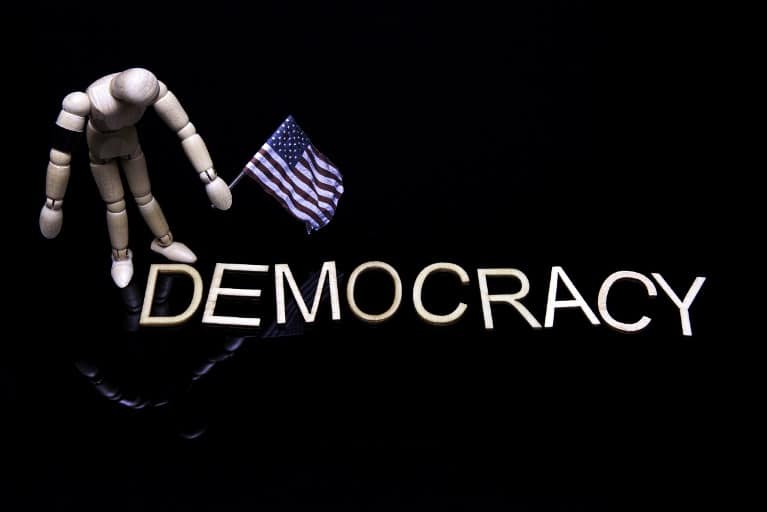Magazine
Reimagining Democracy

Caption
Description
The time has come to reimagine democracy, predicated on the first principles of individual rights and individual autonomy.
The spontaneous eruption of mass opposition to Pres. Donald Trump, the day after his inauguration, has brought the inherent contradictions of U.S. democracy into sharp relief. Trump was elected under U.S. election rules by prevailing in the electoral college, which games the system to the advantage of smaller states. But he lost the popular vote decisively — by close to 3 million votes.
The popular uprising (by all accounts, the number of protestors in Washington, DC, alone was triple those who celebrated his inauguration a day earlier) stems from widespread fears of his misogynistic and autocratic streaks, as well as apprehensions that the Republican majority will steamroll minorities, opponents and dissenters.
We will know in a few months whether the public misgivings over Pres. Trump are justified. The early signs are certainly unsettling. His inauguration speech demonstrated little grace and was a ringing call to arms for his most reactionary proposals. Within 24 hours of the inauguration, he was railing against the media over petty slights, such as the size of the inauguration crowd, and falsely alleging that millions of illegal voters had cost him the popular vote.
Trump’s surprising victory and the rise of populism in the West is fraying the two contradictory strands fused in Western democracy — popular will on the one hand and individual rights on the other. At its core, democratic governance is responsive to the popular will. Absent its liberal strand —individual liberties — it can lend itself to, what Alexis de Tocqueville called, the tyranny of the majority.
In the United States, the Bill of Rights, separation of powers in the Congressional, executive and judicial branches, free speech, etc., are all bulwarks against majority tyranny. Most Western countries, and to lesser degrees, new democracies, such as India, have embraced liberal democracy, constraining popular will by enshrining constitutional protections for civil and political liberties. The inherent contradictions between majority rule and individual rights exist in uneasy balance in the democratic enterprise, and always have for centuries.
The rise of populism now — like the Alien & Sedition Acts in the 18th century and the Red Scare in the 20th century — is testing democracies and individual liberties are once again under siege wearing the time-honored mask of the evil “other,” this time of terrorism, Muslims and illegal aliens.
Democracy is a deeply flawed enterprise. To begin with, there is the dubious process by which the popular will is constructed by appeals to passion, deception, manipulation, incumbency, manufacture of consent, money, gerrymandering of political districts, suppression of votes, etc. Besides, there is nothing inherently virtuous about majority will. As Winston Churchill famously said 70 years earlier, “Democracy is the worst form of government, except for all the others.”
It is unquestionably preferable to alternatives such as monarchy and autocracy. But three centuries into the modern democratic enterprise, the comparative measures ought no longer to be the retrograde regimes of the Middle East or tin-pot dictatorships of Africa.
The time has come to reimagine democracy, predicated on the first principles of individual rights and individual autonomy. Democracy was at best an imperfect instrument for its times, but it has outlived its shelf life, long before Trump stormed the White House barn.
Political philosophers and activists should try to leverage the latest instruments of mobility, communication, networks, and globalization to envision a new and liberating political order that disrupts and erases national and parochial borders of both mind and territory that are driving the retrograde populists of the 21st century.
170 years on from the publication of the last major revolutionary political tract, in the form of Karl Marx’s The Communist Manifesto, is surely long enough to reboot the human political imagination.
